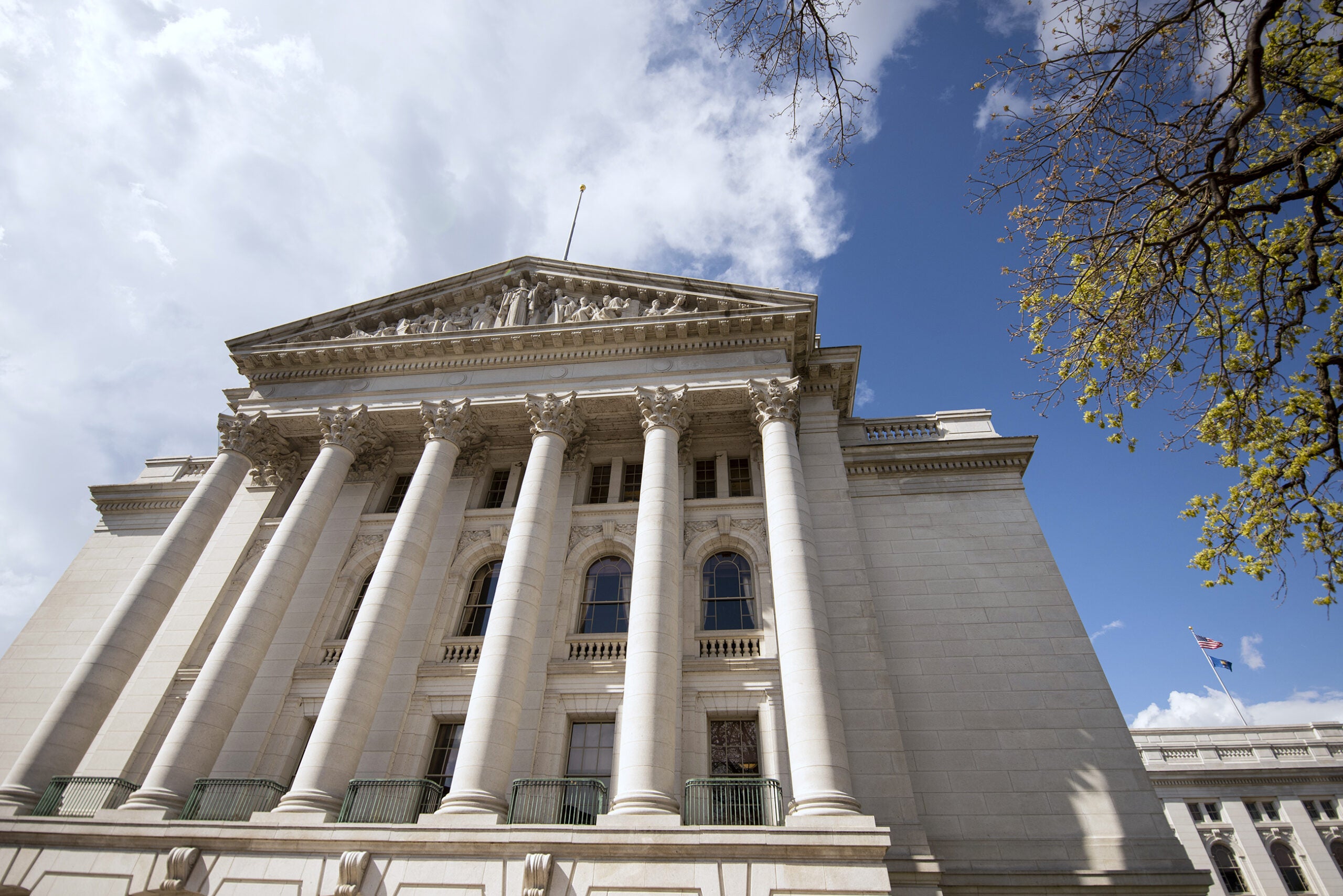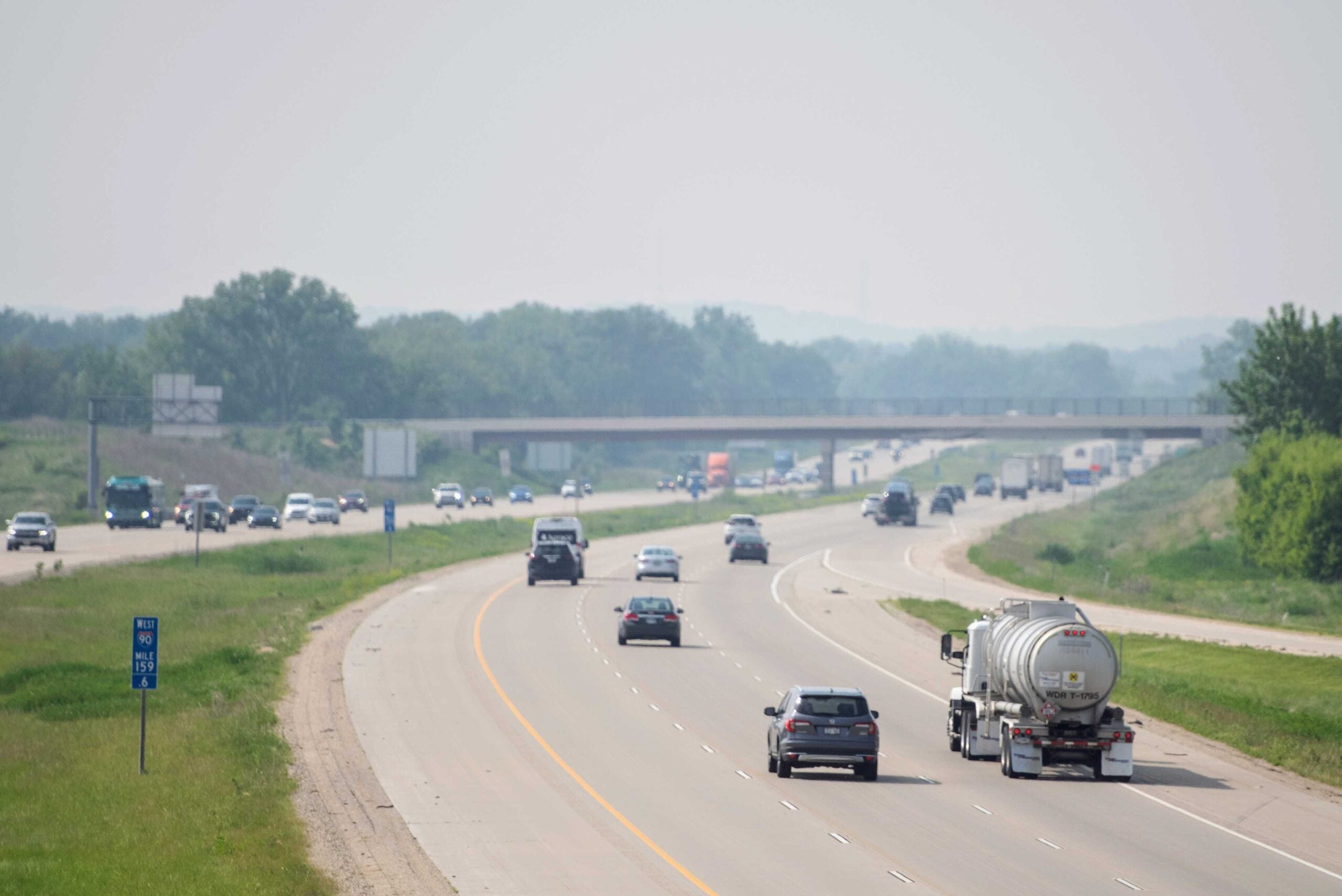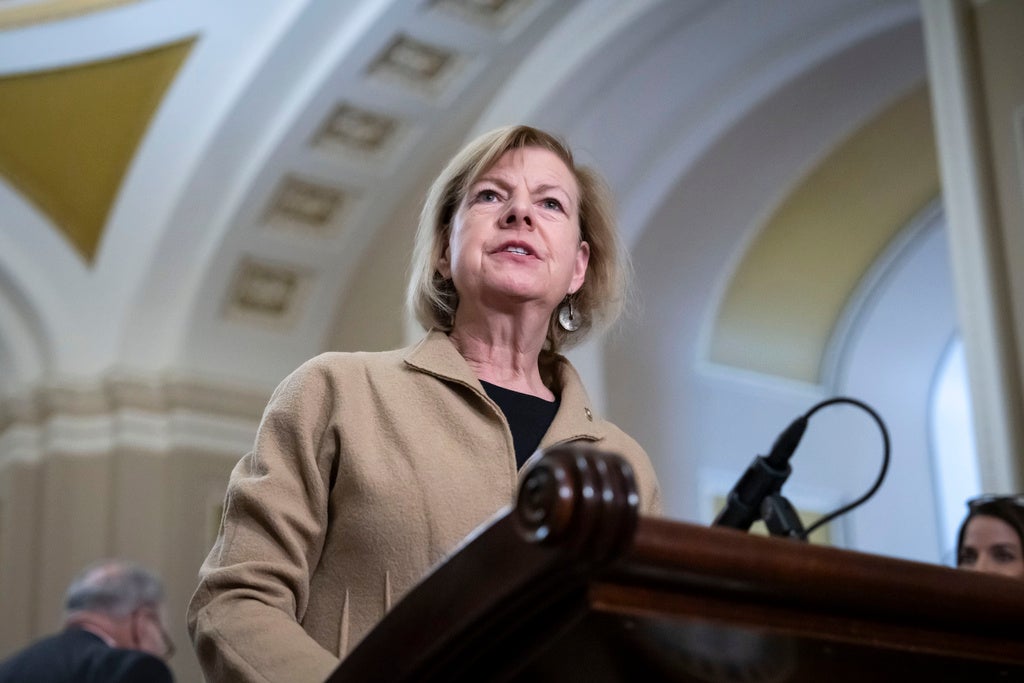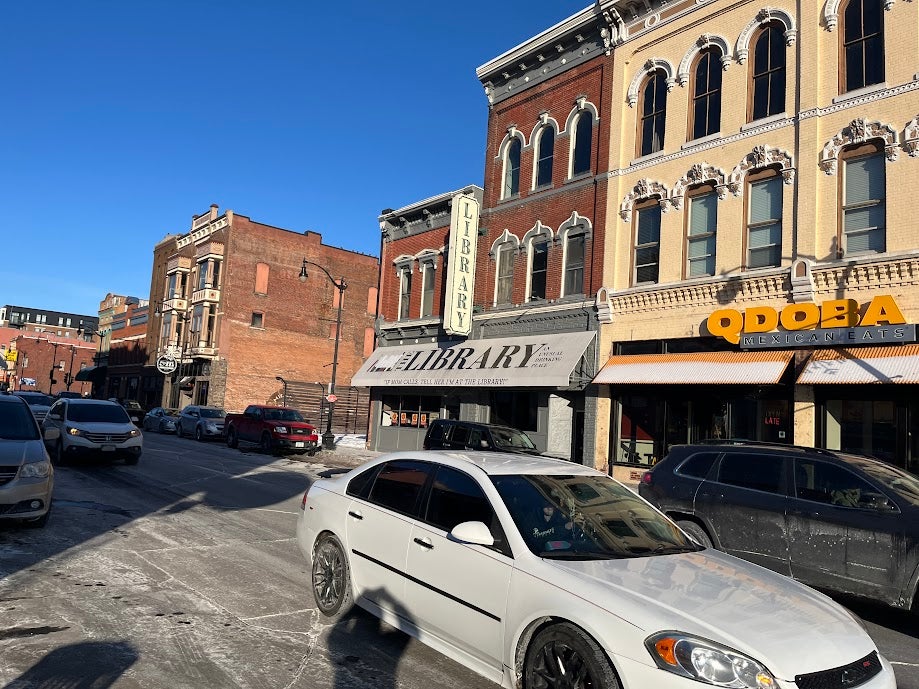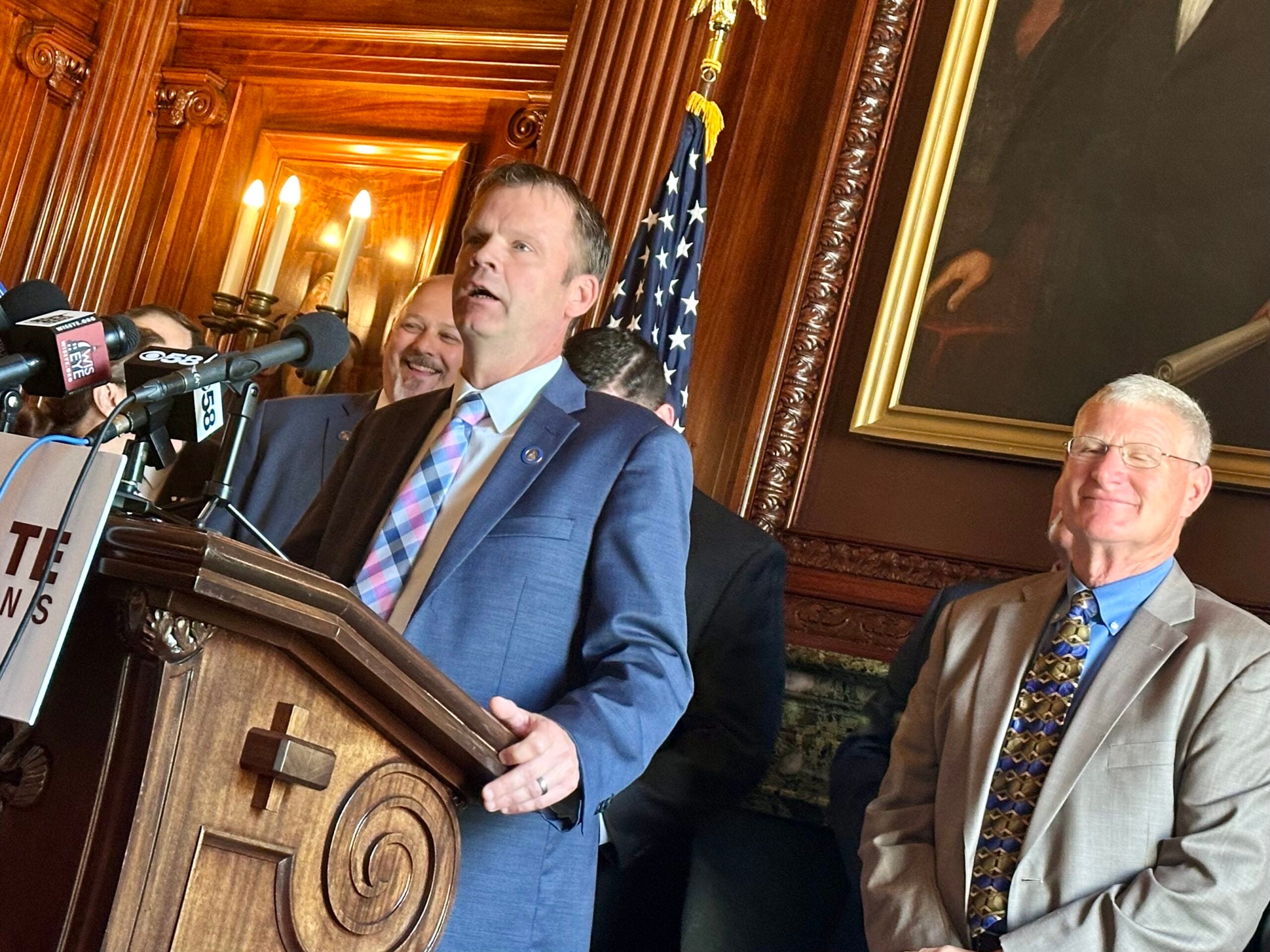Republican lawmakers say a massive overhaul of the way the state funds local governments remains a work in progress.
The Wisconsin Assembly’s Local Government Committee voted along party lines Thursday to pass the bill Republican lawmakers unveiled last week. Democratic Gov. Tony Evers has vowed to veto the plan unless there are changes.
Speaking after the committee’s vote, Rep. Todd Novak, the panel’s chair, told reporters that Assembly Republicans were still negotiating with the governor’s office and the Senate over the final details.
News with a little more humanity
WPR’s “Wisconsin Today” newsletter keeps you connected to the state you love without feeling overwhelmed. No paywall. No agenda. No corporate filter.
“They’re still knee-deep in negotiations,” said Novak, a Republican from Dodgeville.
The version of the plan Republicans passed out of committee would dedicate 20 percent of the state’s sales tax to local government funding, which is the same benchmark Evers called for in the shared revenue proposal he released as part of his budget. But the Republican bill directs a larger share of the new money to smaller communities instead of bigger cities.
Under the GOP bill, every community would see at least a 10 percent increase in state funding, but larger cities like Green Bay and Racine receive millions less than they would under the governor’s plan. Some small towns would see increases of several hundred percent, though the total dollars they’d receive would be relatively modest.
“I’m not hearing anything about a big change in the formula,” Novak said of the ongoing negotiations. “But that may change.”
The Republican bill also attaches far more strings for local governments to receive the money. They include:
- A provision that would require local approval of projects funded through the Knowles-Nelson Stewardship Program north of Highway 8, which runs east to west across the northern tier of the state.
- Requirements that local governments either maintain the number of police on staff or maintain the number of tickets they write and people they arrest.
- A ban on local advisory referendums on issues ranging from whether the state should legalize marijuana to whether all-terrain vehicles should be allowed on local roads.
- New restrictions on the power of local health officers that would prevent them from unilaterally closing businesses for more than 14 days to control an outbreak or epidemic.
- A variety of new restrictions specific to Milwaukee, including a ban on using state funding for the city’s streetcar and a requirement to bring armed police officers back to its public schools.
Ahead of the vote, Democrats on the committee tried to amend the plan to remove many of the new restrictions.
“I’m deeply concerned with the policies that are put into this bill,” said Rep. Clinton Anderson, D-Beloit. “This is not just a shared revenue bill. This is a shared revenue bill with a lot of strings that prevent local control.”
The Democratic amendment failed on a party-line vote.
Democrats did not attempt to remove another controversial provision that would require Milwaukee and Milwaukee County to get voter approval before they increase local sales taxes. If voters give the OK, the GOP plan would let Milwaukee add a new 2 percent sales tax and let Milwaukee County increase its sales tax by 0.375 percent.
Milwaukee Mayor Cavalier Johnson has warned that if those referendums fail, it could force him to fire hundreds of police and firefighters, but Assembly Speaker Robinn Vos, R-Rochester, has been adamant that the voter approval requirement remain in the final bill.
Novak said that Assembly Republicans’ changes would be ready in time for the full Assembly to pass the bill Wednesday. The Senate and governor would still need to sign off.
While Republicans are passing the local government funding as a standalone bill, Novak indicated that it would affect state budget negotiations, which are also happening now.
“This is such a big part of the state budget that it really needs to be done now so the rest of the budget can be done,” Novak said. “Because this we’re talking very large amount of money.”
Wisconsin Public Radio, © Copyright 2025, Board of Regents of the University of Wisconsin System and Wisconsin Educational Communications Board.

